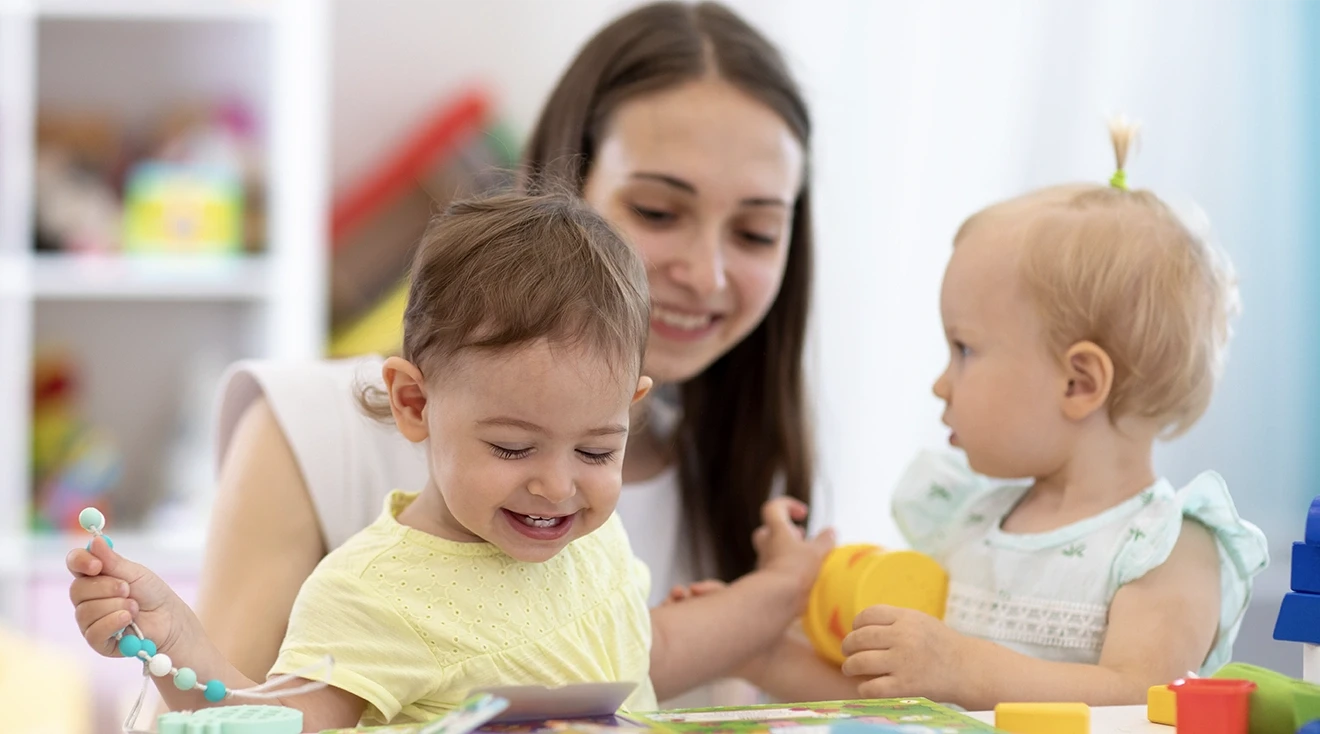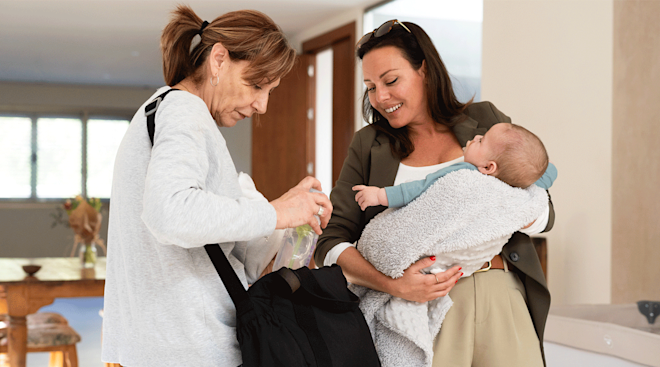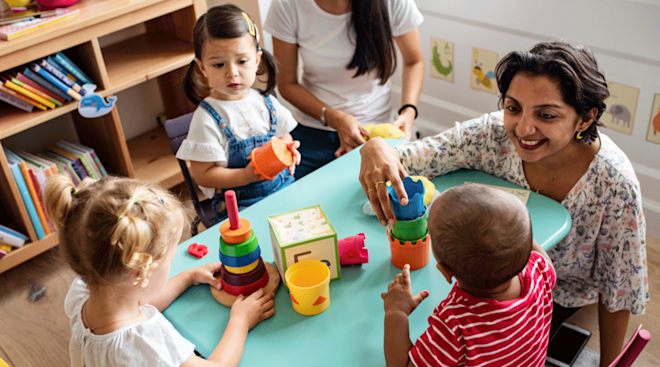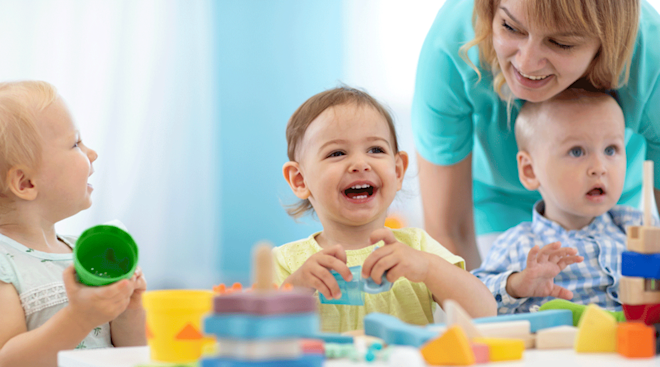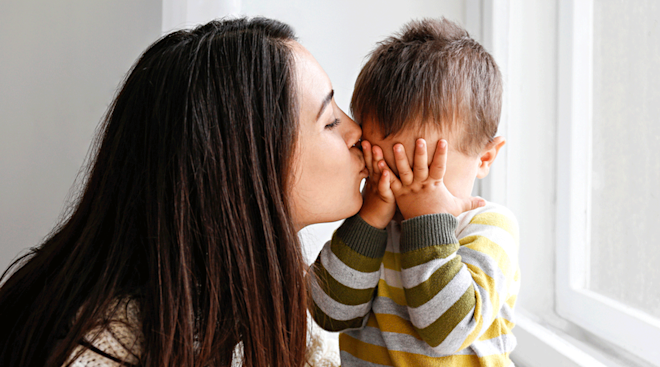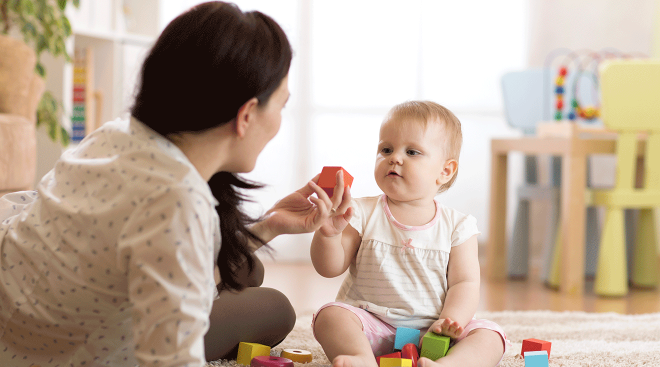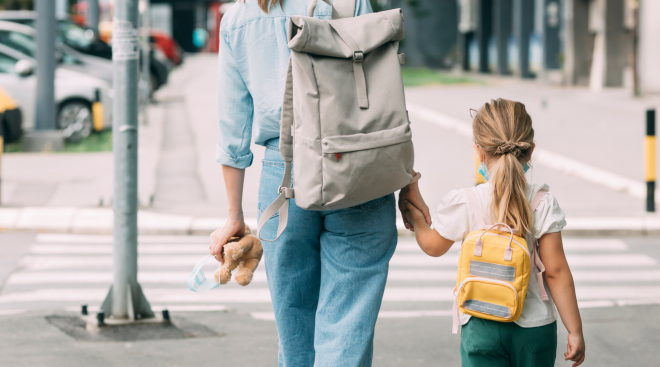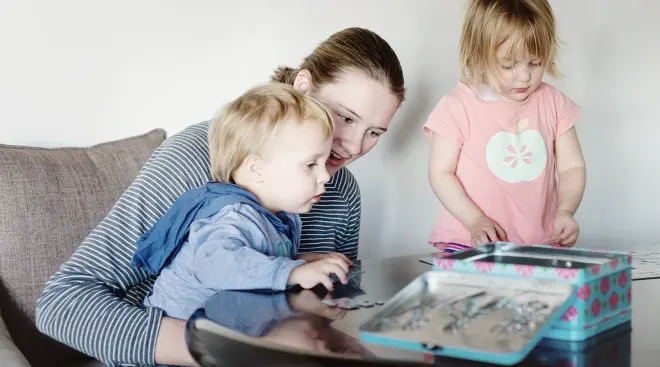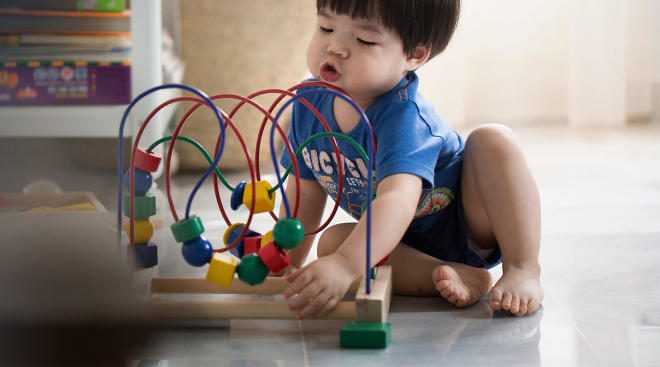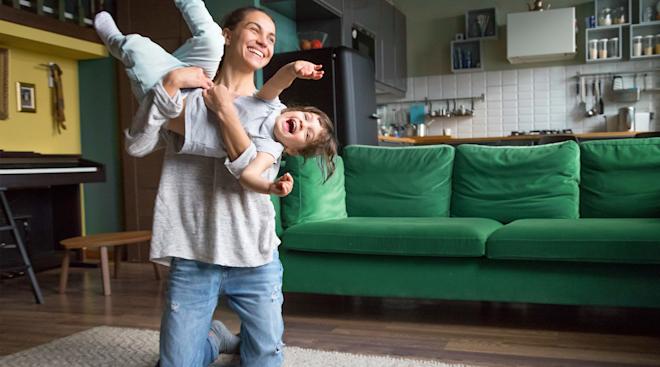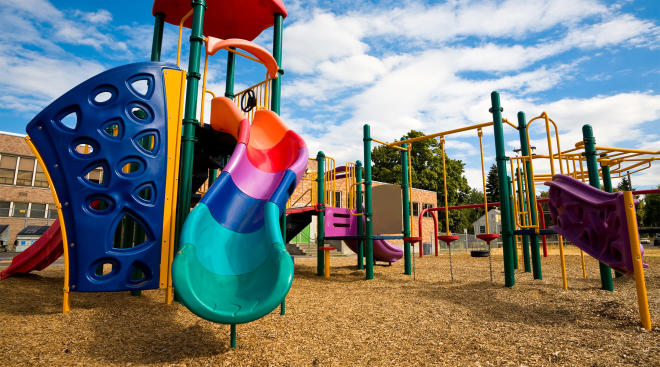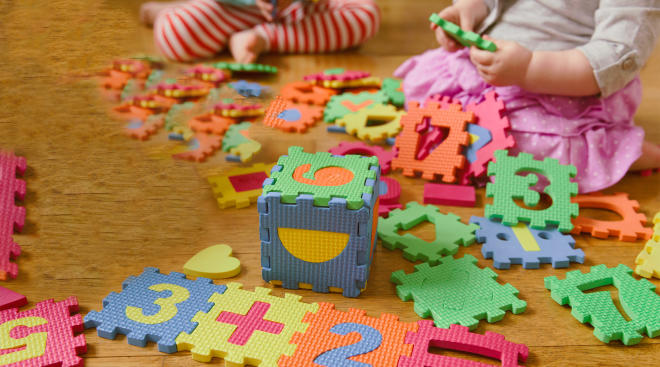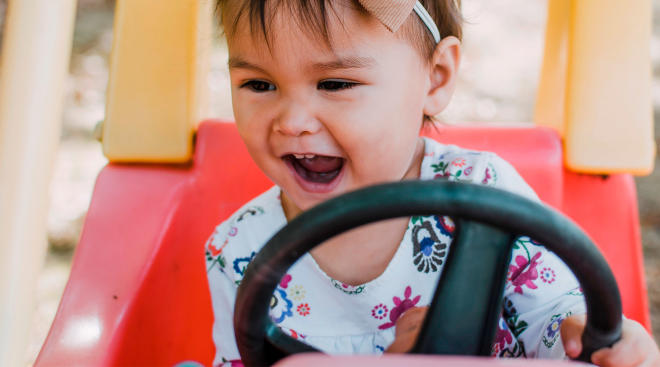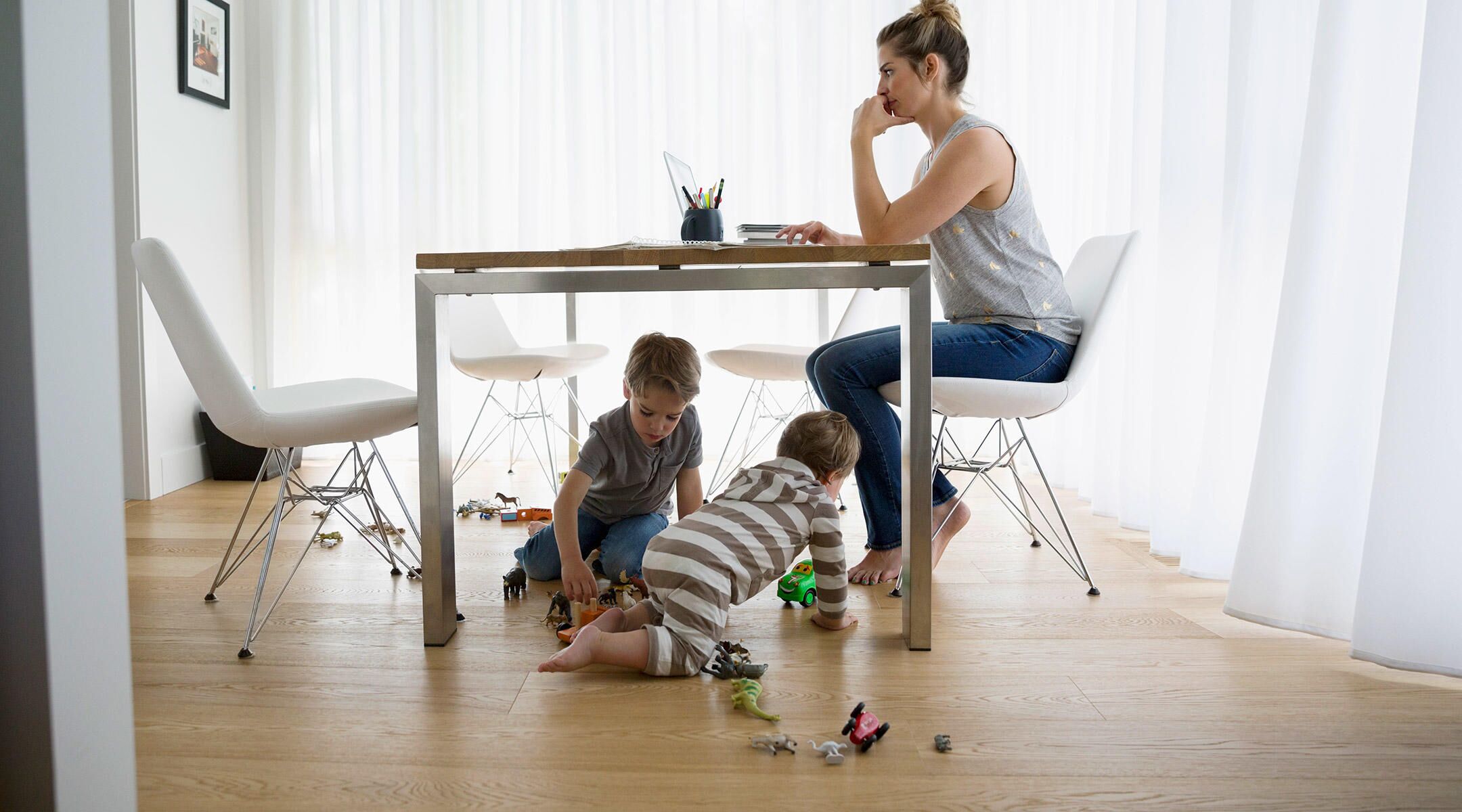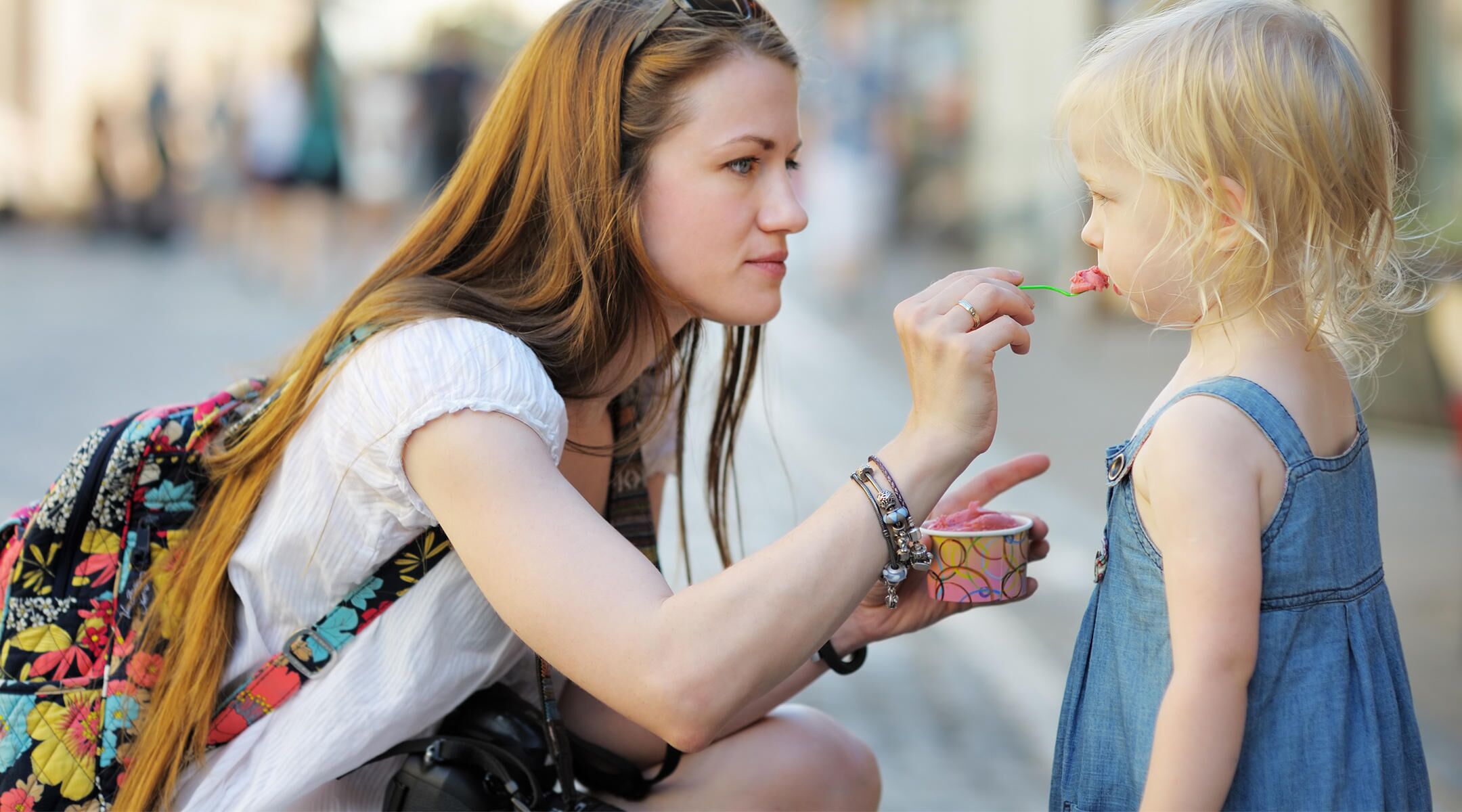8 Ways to Ensure a Smooth Transition Into Daycare
When my son started daycare a year ago, his quivering lip and outstretched arms at drop-off shattered my heart each morning—even though I knew that once the doors closed behind me, he’d be distracted by all the fun things his teacher had planned for the day. But now that the drop-off has become routine, it’s much easier for us. Sound familiar?
Starting daycare is a major milestone that can carry a lot of anxiety and unfamiliarity for your child (not to mention for you!). These expert tips will help make the transition a lot smoother.
Immersing your child (and yourself) into their new schedule with a “dry run” can be super helpful ahead of the big first day. Practicing your routine together will create familiarity with the whole process, which will help your child settle in while giving you some all-important peace of mind.
Rachel Duda, MEd, vice president of learning at Vivvi, a childcare and early-learning provider, says easing into the daycare routine can be more effective than making a sudden—and potentially shocking—change a day or two before daycare starts. “While so much about this experience is exciting, leaving the comforting rituals of life at home for a new set of people and rules can be challenging for some children,” she says. “That’s why it’s important to treat going to daycare as a process rather than just a date on your calendar.”
Packing a comfort stuffed animal, such as a teddy bear, or lovey can help support your child emotionally when you’re away. If the beloved object has been regularly handled by you and your child—even better. (It’ll smell like home!)
“This is because the sensory system plays a key role in a child’s [emotional] regulation, and smelling a scent that’s familiar and comforting will send cues of safety throughout their brain and body, therefore easing the tension of the transition,” says Kendra Delahooke, LMFT, founder and owner of the Child Therapy Center of Los Angeles.
Give your child an introduction to their new routine by sharing a story about what’s going to happen. This works even if you think they’re too young to understand, says Kimberley Bennett, PsyD, an educational psychologist and creator of The Psychologist’s Child. “Tell them where they’ll go, who will be taking care of them and, most importantly, repeat the message to your baby: ‘Grownups always come back!’”
Delahooke agrees, explaining that children’s brains crave predictability. “When they know what’s coming, it greatly reduces the chance that their brain will experience an event as threatening,” she says.
Planning a swift getaway at the daycare door? Think again, our experts say.
“Even though many people will advise you to sneak away from your baby, don’t,” says Bennett. Instead, she suggests offering a calm and confident goodbye. “Babies will use you as their social reference to determine how ‘safe’ they feel being left. If they see you communicating to them through your smiling facial expression and relaxed body language that they’re safe, they’ll feel more comfortable.”
Try not to feel disheartened if the strategy your best mom friend swears by doesn’t work for you. Some children will settle into their new routine relatively easily, while others might need a little more time.
“It’s very important to remember that no two children are the same, and we shouldn’t expect them to act the same, especially on important days such as the first day of daycare,” Delahooke says.
It’s never easy to leave your child with a new caregiver, especially if they experience separation anxiety at first. “The best way to reduce separation anxiety is to ensure that your little one has a relationship with the caregiver they’re being left in the care of,” says Bennett.
Keep in mind that your child might cry when you drop them off, but they’ll often feel better once their day actually gets going. “If your child is having trouble separating, speak to your child’s teachers to see how [your child feels] once you’re gone for the day,” advises Duda. “Often, once a child begins the day, the sadness stops.” Duda also recommends asking for pictures of key daycare staff members to keep at home in the early days so that they’ll feel more familiar.
You might feel worried or guilty about going back to work, or you might be anxious about leaving your little one for the day for the very first time. All of these are completely normal and understandable emotions.
Practicing self-compassion can be a total game-changer in this situation, says Delahooke. “It’s an incredibly simple and easy-to-use tool that has been well-studied and proven to reduce stress hormones in parents and caregivers,” she says. “It’s turning the kind, present and warm affection we give toward others, toward ourselves.”
Delahooke adds that young children haven’t yet mastered how to deal with their emotions, so they subconsciously “sync up” with their caregiver. This means it’s important to do our best to regulate our own emotions. “While you don’t have to be perfect, it’s important to take an honest look at your stress levels and overall mental health because your child depends on it,” she says.
Being truly present after you pick up your child—whether it’s during your trip home or your usual evening routine—will help remind them that the separation they just experienced is only temporary.
Bennett says not to underestimate the power of touch. “Remember that during the first year in particular, babies connect through the senses, which means they’ll want to be physically close to you when they’ve spent time apart from you,” she says. “Cuddle baby, hold them close, sing to them. Connect with them in any way that feels good to both of you.”
Starting daycare may initially feel like a big adjustment for both you and your child—but, with time, you’ll both settle into the routine. If you or your child are initially having a hard time with the change, remember to be gentle and give it time. This new struggle is very real—and very common—but it’ll become easier as you go through the steps again and again.
Plus, more from The Bump:
Rachel Duda, MEd, is the vice president of learning at Vivvi, a childcare and early-learning provider. She has a master’s in early-childhood education and teaching from Bank Street College of Education in New York City.
Kendra Delahooke, LMFT, is the founder and owner of the Child Therapy Center of Los Angeles. She has a master’s degree in clinical psychology from Azusa Pacific University in California.
Kimberley Bennett, PsyD, is an educational psychologist and creator of The Psychologist’s Child. She has a doctorate in child, adolescent and educational psychology from Queen’s University in Belfast, Northern Ireland.
Navigate forward to interact with the calendar and select a date. Press the question mark key to get the keyboard shortcuts for changing dates.
































